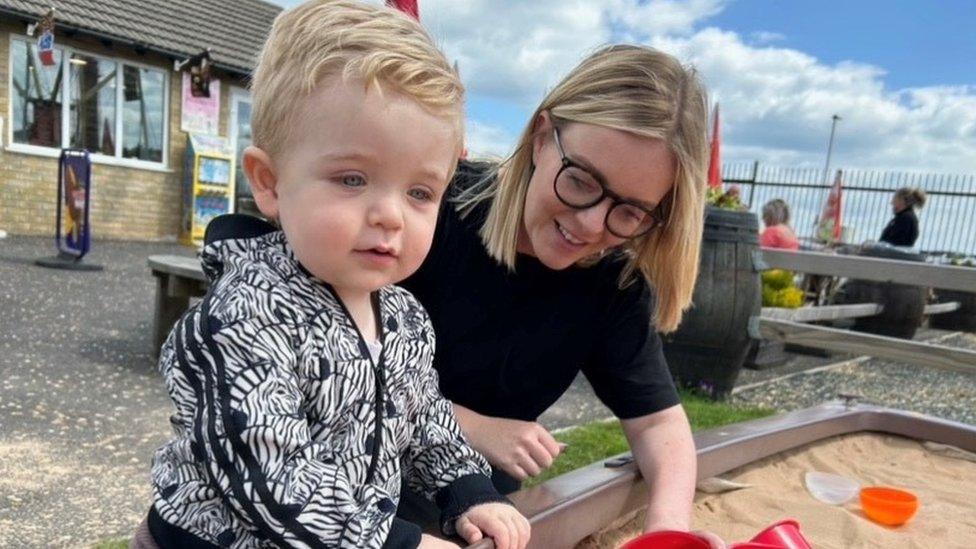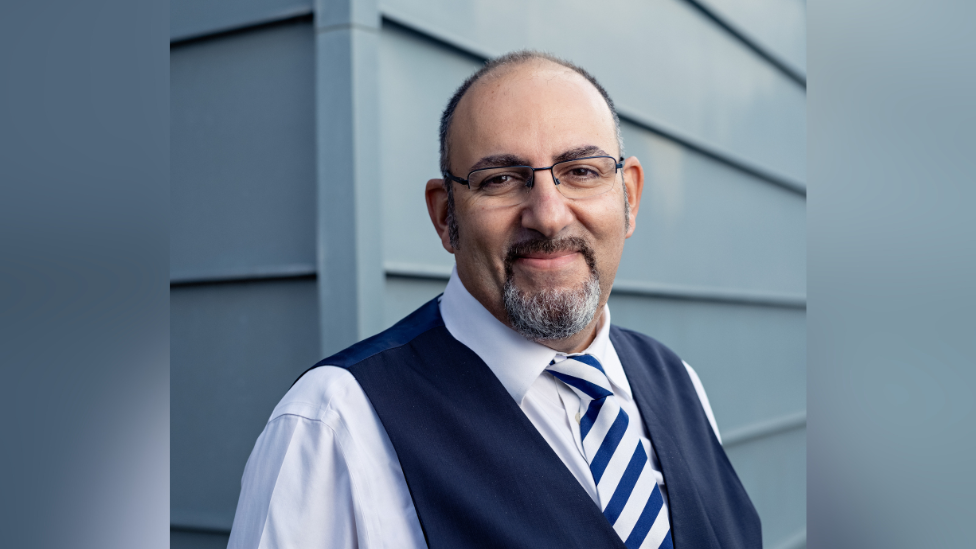'Fertility fairness' workplace initiative welcomed by mum
- Published

Carlene Hickin has a two-year-old son after a second round of IVF was successful
A mum has welcomed an initiative to help firms support staff experiencing fertility struggles.
Carlene Hickin, from Lowestoft in Suffolk, underwent surgery and two rounds of IVF treatment before she became pregnant.
She said support from her employer was necessary to stick to her IVF schedule.
A doctor said some patients made appointments and injected hormone medication in secret so they did not "jeopardise their careers".
Ms Hickin, 38, tried to conceive for five years before she started IVF treatment at the Bourn Hill clinic at Wymondham, Norfolk, and her second round was successful. She now has a two-year-old son.
'Hope to despair'
She said her employer was supportive but she was aware that other workplaces were less understanding.
"I think one of the biggest shocks was that some employers see it [IVF] as elective, like plastic surgery, but it is something you feel you need to do," said Ms Hickin.
"It is sad that some people struggle on their own - appointments and taking injections at specific times are crucial to treatment.
"Something needs to be done so people are not taking injections in an office toilet and they are comfortable and supported."

Dr Papathanasiou provided insight into the clinical side of fertility treatments and the initiative at an event in Westminster
The world's first IVF clinic, Bourn Hall, based in Cambridgeshire with clinics in Wymondham and King's Lynn, joined Fertility Network UK, external to launch the Fertility in the Workplace initiative.
Under the initiative, flexibility and a greater understanding of what fertility treatment involves have been highlighted as practical ways employers could support and retain staff.
Employees would be offered one-to-one support to understand their workplace rights and how to approach their employer.
Dr Thanos Papathanasiou, CEO and medical director of Bourn Hall, said it was also important for fertility clinics to be "more supportive of people balancing treatment with work".
He said clinics should be "recognising the need for more flexible appointments and protocols in order to minimise the impact on a patient's working day".
"We talk to patients who don't want to jeopardise their careers, so they are trying to make appointments and inject hormone medication in secret, all the while balancing a rollercoaster of emotions from hope to despair", said Dr Papathanasiou.

Claire Heuclin, the Fertility in the Workplace coordinator, said infertility can have a devastating impact on lives
One in six, external working age people have difficulties conceiving, according to Fertility Network UK.
Claire Heuclin, the Fertility in the Workplace coordinator, said: "Infertility impacts both partners and can create devastating effects on all areas of their lives.
"If employers and managers are aware of what fertility treatments involve and what the outcomes can look like, they can better understand the associated stress and can create safe spaces for staff to talk in confidence."

Follow East of England news on Facebook, external, Instagram, external and X, external. Got a story? Email eastofenglandnews@bbc.co.uk, external or WhatsApp 0800 169 1830
- Published13 March 2024

- Published10 March 2024

- Published16 February 2024
